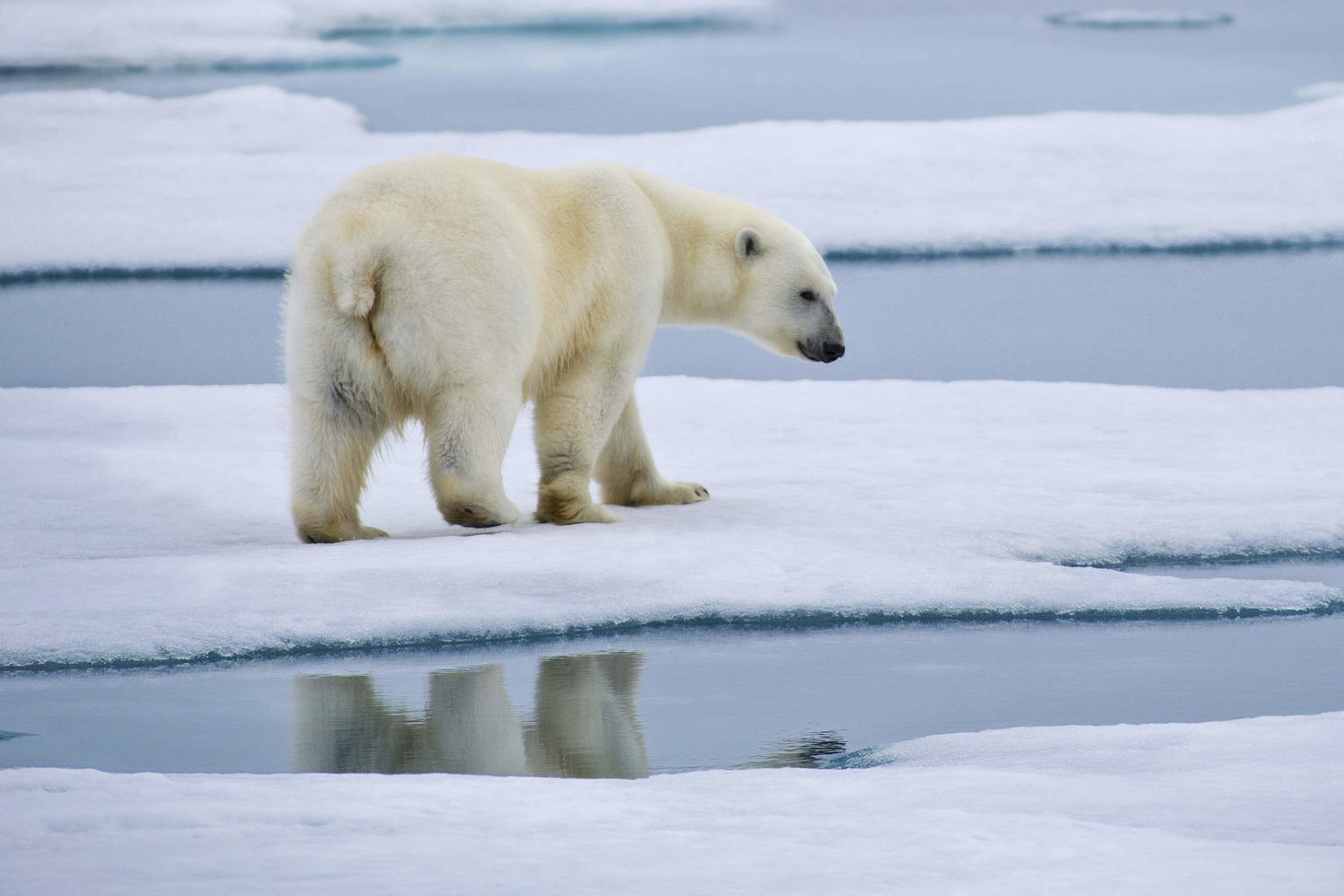In an era of #fakenews, it can sometimes be tricky to work out what is legitimate scientific reporting, and what is, well, fake. New research suggests there’s a handy rule of thumb for spotting the work of climate science deniers, however: look for the polar bears.
One of the most glaring differences between legitimate science-based blogs and those that deny the science on anthropogenic climate change is how they write about polar bears and Arctic sea ice.
Polar bears have long been a “poster species” for climate change. And as it turns out, a new study published by journal BioScience has found that on this issue there is almost zero overlap between climate science deniers and science writers.
The study, released at the end of November, is authored by a group of international scientists including Michael Mann from Penn State University, Stephen Lewandowsy from the University of Bristol and Bart Verheggen from Amsterdam University College.
Looking at 45 climate science denial blogs and 45 science-based climate blogs, the study found “a clear separation” between them with the two groups taking “diametrically opposite positions on the ‘scientific uncertainty’ frame” regarding melting Arctic ice and the threat to polar bears.

Crockford’s claims have been echoed by well-known climate deniers including Matt Ridley and the Global Warming Policy Foundation (GWPF).
For example, in 2013 the GWPF issued a report by Crockford with a forward by Ridley entitled: “Ten Good Reasons Not To Worry About Polar Bears”. The report was updated this year ahead of the Bonn COP23 climate conference with 20 reasons.
Other popular climate science denial blogs such as Junk Science, WattsUpWithThat and Climate Depot all echo Crockford’s argument as well. But the polar bear trope isn’t just confined to the fringe blogosphere. The argument has found its way into the mainstream press, further amplifying the misinformation.
In the past, articles have been written by Ridley in the Spectator and Christopher Brooker in the Telegraph. More recently, Breitbart’s James Delingpole wrote on this topic with a March 2017 article entitled “Polar Bears Are a Pest – Time to End Their ‘Threatened’ Status”, in which he too cites Crockford.
And when the BBC’s latest Blue Planet II was released this fall, climate science denying former UKIP MEP Roger Helmer took to twitter demanding answers from David Attenborough about polar bears and climate change.
Helmer also extended the argument to walruses.
Attenborough’s walruses are the new polar bears for global warming alarmists — despite the fact that both species are doing just fine.
— Roger Helmer (@RogerHelmerMEP) October 30, 2017
“We would like other scientists and the general public alike to realize the extent to which, and how contrarian blogs distort scientific evidence; that there’s an ecosystem of science denial out there in which misinformation is being recycled and amplified,” Verheggen told DeSmog UK.
“The blogs have a far and wide reach,” he explained, “so they can’t just be dismissed as a fringe phenomenon, even though scientifically speaking their arguments are at the far fringe indeed. Science is not ‘just another opinion’. A well-informed citizenry is important for a well functioning democracy, and people should be aware of how misinformation is being promulgated.”
DeSmog Canada looked at the science behind the argument and spoke with another one of the study’s authors, Ian Stirling, a prominent polar bear biologist, who told them the problem is that: “If you tell a lie big enough, often enough, people will begin to believe it.”
“They distract the public at large, particularly in the U.S.,” Stirling continued, “from taking on the biggest threat that the world has ever experienced.”
That’s why the new study calls the polar bear trope a “keystone domino” – an individual piece of evidence that’s used to capture people’s attention, essentially serving as a proxy for the entire topic of climate change.
If the theory or science underlying this one topic is shown to be false, then, the study’s authors explain, the implication bloggers hope to convey is that so too is the rest of the science.
As the study states: “By appearing to knock over the keystone domino, audiences targeted by the communication may assume all other dominoes are toppled in a form of ‘dismissal by association’.”
But, as Dana Nuccitelli writes in the Guardian:
“It’s also important that we not lose sight of the forest for the trees. Although it may be interesting to debate whether polar bears will be able to adapt to their rapidly-changing environment, that single climate change impact does not alter the overwhelming body of scientific evidence supporting human-caused global warming and the threats it poses.
“Climate science isn’t a set of dominoes or a house of cards; it’s a towering structure built on a strong scientific foundation.”
Photo: RayMorris1 via Flickr | CC2.0
Subscribe to our newsletter
Stay up to date with DeSmog news and alerts







